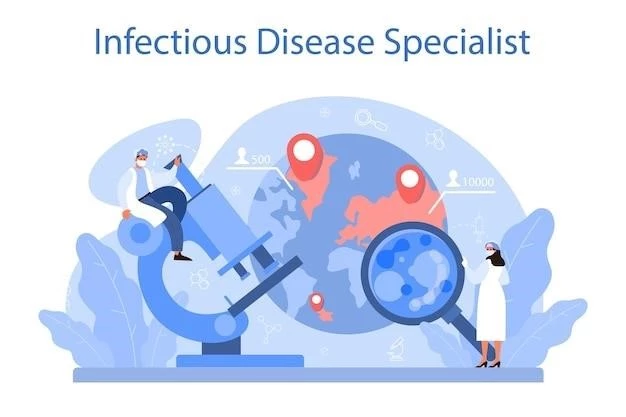Introduction
An overview of Ischiopatellar Dysplasia Isochromosome 18p Syndrome‚ a rare chromosomal abnormality with skeletal anomalies and intellectual disability.
Overview of Ischiopatellar Dysplasia Isochromosome 18p Syndrome
Ischiopatellar Dysplasia Isochromosome 18p Syndrome‚ a genetic disorder‚ manifests with chromosomal abnormalities affecting chromosome 18. Individuals with this rare disease exhibit orthopedic abnormalities‚ neurodevelopmental delays‚ intellectual disability‚ and growth retardation. Medical management includes physical therapy and orthopedic interventions. A comprehensive understanding of this condition is crucial for diagnosis‚ genetic counseling‚ and implementing appropriate treatment approaches.
Understanding Chromosomal Abnormalities
An explanation of the chromosomal abnormalities associated with Ischiopatellar Dysplasia Isochromosome 18p Syndrome.
Explanation of Chromosome 18 and Isochromosome 18p Syndrome
Chromosome 18 is crucial in human genetics‚ and abnormalities like Isochromosome 18p Syndrome can lead to Ischiopatellar Dysplasia. This rare condition results from duplications or rearrangements of genetic material on the short arm of chromosome 18‚ impacting various aspects of physical and cognitive development. Understanding the genetic basis of Isochromosome 18p Syndrome is fundamental for diagnostic evaluations and the development of tailored medical interventions.
Clinical Manifestations
A discussion on the skeletal anomalies‚ orthopedic abnormalities‚ and the impact of Ischiopatellar Dysplasia on physical health.
Discussion on Skeletal Anomalies and Orthopedic Abnormalities
Ischiopatellar Dysplasia Isochromosome 18p Syndrome presents with skeletal anomalies such as abnormal bone formation and orthopedic abnormalities affecting joints and limb structure. These orthopedic challenges may require medical management strategies‚ including physical therapy and orthopedic interventions‚ to address the musculoskeletal issues associated with this rare genetic disorder.
Impact of Ischiopatellar Dysplasia on Physical Health
Ischiopatellar Dysplasia Isochromosome 18p Syndrome significantly affects physical health due to skeletal anomalies and orthopedic abnormalities. These challenges can lead to mobility issues‚ pain‚ and functional limitations‚ necessitating a multidisciplinary approach for medical management. Individuals with this rare disease may benefit from physical therapy interventions to improve musculoskeletal function‚ enhance mobility‚ and minimize the impact of orthopedic anomalies on their overall physical well-being.

Neurodevelopmental Effects
An exploration of intellectual disability and neurodevelopmental delays associated with Ischiopatellar Dysplasia Isochromosome 18p Syndrome.
Intellectual Disability and Neurodevelopmental Delays
Individuals with Ischiopatellar Dysplasia Isochromosome 18p Syndrome may experience intellectual disability and neurodevelopmental delays due to the chromosomal abnormalities affecting chromosome 18. These neurocognitive challenges can impact learning‚ communication‚ and daily functioning. Early intervention strategies and tailored educational support can help optimize cognitive development and enhance the quality of life for individuals affected by this rare genetic disorder.
Growth Retardation and Medical Management
Insight into medical interventions for growth retardation in Ischiopatellar Dysplasia Isochromosome 18p Syndrome.
Medical Interventions for Growth Retardation in Ischiopatellar Dysplasia Isochromosome 18p Syndrome
Growth retardation‚ a common feature of Ischiopatellar Dysplasia Isochromosome 18p Syndrome‚ necessitates targeted medical interventions to address nutritional and endocrine aspects contributing to impaired growth. Multidisciplinary medical management involving endocrinologists and nutritionists is essential to optimize growth parameters and the overall health of individuals affected by this rare genetic disorder. Implementing personalized interventions tailored to each individual’s needs is crucial for promoting adequate growth and development.
Diagnosis and Genetic Counseling
Exploring the role of genetic testing in identifying Isochromosome 18p Syndrome for accurate diagnosis and appropriate genetic counseling.
Role of Genetic Testing in Identifying Isochromosome 18p Syndrome
Genetic testing plays a crucial role in the diagnosis of Isochromosome 18p Syndrome‚ allowing for the detection of chromosomal abnormalities on chromosome 18. Through advanced genetic analysis techniques‚ such as karyotyping or chromosomal microarray analysis‚ healthcare professionals can confirm the presence of the isochromosome 18p abnormality. This genetic information enables genetic counselors to provide accurate information to families‚ offer personalized guidance on the inheritance pattern‚ and facilitate informed decision-making regarding reproductive choices.
Rare Disease Considerations
Challenges in managing a rare genetic disorder like Ischiopatellar Dysplasia Isochromosome 18p Syndrome.
Challenges in Managing a Rare Genetic Disorder like Ischiopatellar Dysplasia Isochromosome 18p Syndrome
Managing Ischiopatellar Dysplasia Isochromosome 18p Syndrome presents unique challenges due to its rarity‚ requiring specialized medical expertise and multidisciplinary care coordination. The scarcity of clinical information and limited treatment options contribute to the complexity of managing this genetic disorder. Healthcare providers face challenges in ensuring timely diagnoses‚ accessing appropriate medical interventions‚ and supporting individuals and families affected by this rare disease. Collaboration among medical professionals‚ researchers‚ and patient advocacy groups is crucial to enhance understanding and improve outcomes for individuals with Ischiopatellar Dysplasia Isochromosome 18p Syndrome.
Treatment Approaches
An overview of physical therapy and orthopedic interventions for Ischiopatellar Dysplasia Isochromosome 18p Syndrome.
Overview of Physical Therapy and Orthopedic Interventions
Physical therapy and orthopedic interventions play a vital role in managing Ischiopatellar Dysplasia Isochromosome 18p Syndrome. Physical therapy focuses on improving mobility‚ strength‚ and motor skills‚ while orthopedic interventions address skeletal anomalies and orthopedic abnormalities. A tailored approach that combines therapeutic exercises‚ assistive devices‚ and orthopedic treatments is essential to enhance the musculoskeletal function‚ alleviate pain‚ and optimize the overall physical health and well-being of individuals affected by this rare genetic disorder.
Prognosis and Long-Term Outlook
An assessment of life expectancy and quality of life for individuals with Ischiopatellar Dysplasia Isochromosome 18p Syndrome.
Life Expectancy and Quality of Life for Individuals with Ischiopatellar Dysplasia Isochromosome 18p Syndrome
The life expectancy and quality of life for individuals with Ischiopatellar Dysplasia Isochromosome 18p Syndrome can vary based on the severity of skeletal anomalies‚ neurodevelopmental delays‚ and overall health status. While the prognosis may be influenced by the presence of comorbidities and the individual’s response to medical interventions‚ early diagnosis‚ multidisciplinary care‚ and ongoing support can positively impact long-term outcomes. Ensuring access to appropriate healthcare services‚ educational resources‚ and social support networks is essential in enhancing the quality of life and maximizing the potential of individuals living with this rare genetic disorder.
Conclusion
A summary of key points related to Ischiopatellar Dysplasia Isochromosome 18p Syndrome.
Summary of Key Points Related to Ischiopatellar Dysplasia Isochromosome 18p Syndrome
Ischiopatellar Dysplasia Isochromosome 18p Syndrome is a rare genetic disorder characterized by chromosomal abnormalities affecting chromosome 18‚ leading to skeletal anomalies‚ orthopedic abnormalities‚ intellectual disability‚ neurodevelopmental delays‚ and growth retardation. Medical management involves physical therapy and orthopedic interventions to optimize musculoskeletal function; Genetic testing plays a crucial role in diagnosis‚ enabling tailored medical interventions and genetic counseling. Managing this rare disease requires a multidisciplinary approach and collaboration among healthcare professionals to address the unique challenges and improve the quality of life for affected individuals.
